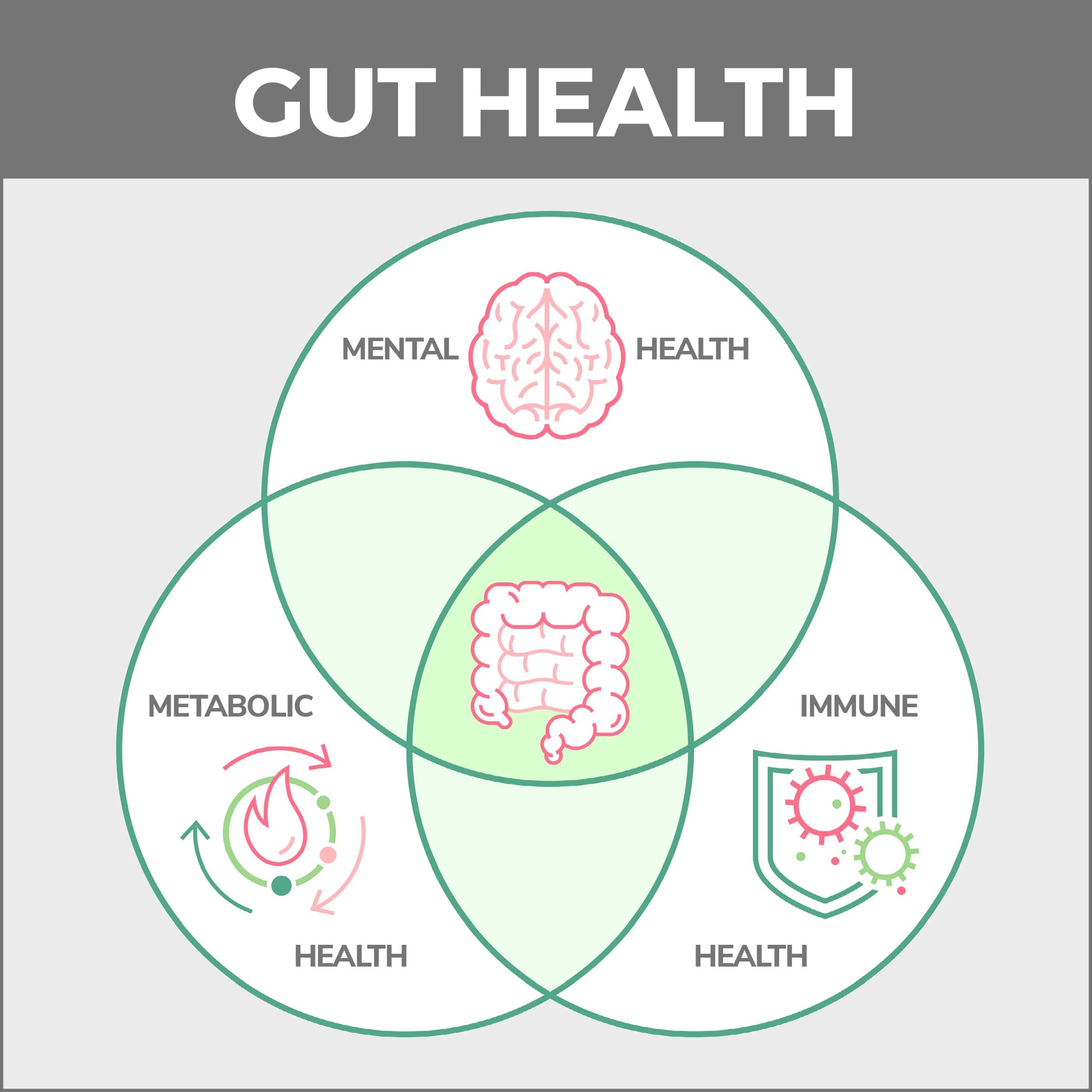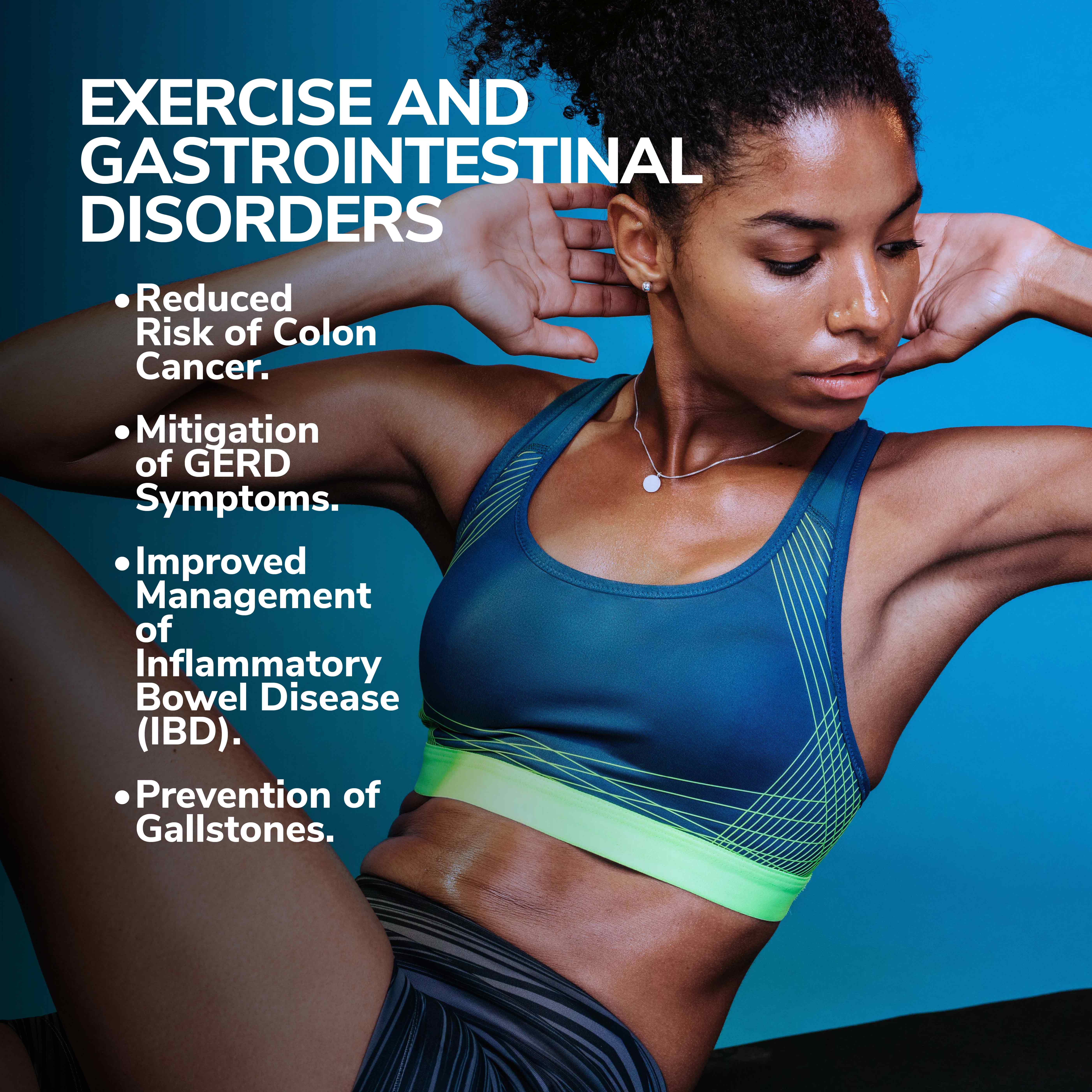
How Does Exercise Influence Gastroenterology Health?
The human body is an intricate system of interconnected organs, and our lifestyle choices reverberate throughout this complex network. The interplay between physical activity and gastroenterology health is a field of increasing interest in medical research. Emerging evidence reveals that regular exercise significantly influences our gut health and overall well-being. Keep reading to learn more about how exercise impacts our gastroenterology health and why it should be a cornerstone of your daily routine.
Understanding the Impact of Exercise on Your Gut Health
Understanding the relationship between exercise and the digestive system is important to ensure optimal gut health and the associated benefits.
1. Exercise and Gastrointestinal Transit Time
A crucial aspect of exercise’s impact on health is its effect on gastrointestinal (GI) transit time. This refers to the duration it takes for food to travel from your mouth through your digestive tract, to be finally being expelled as waste. When it comes to improving GI transit time, regular exercise plays a pivotal role:
- Promotion of Bowel Movements: Regular physical activity can stimulate the muscles in the digestive tract, for more efficient movement of food and waste. This can result in improved bowel regularity, significantly reducing the risk of constipation – a common condition that can cause discomfort and other health complications.
- Alleviation of IBS Symptoms: Irritable bowel syndrome (IBS) is a common disorder that affects the large intestine, causing symptoms like cramping, abdominal pain, bloating, gas, diarrhea, and constipation. Regular exercise can help manage and get rid of these symptoms. It reduces stress, a common trigger for IBS flare-ups, and improves the speed and ease of food and waste movement through the gut.
- Optimization of Nutrient Absorption: Regular exercise can potentially optimize nutrient absorption. By encouraging a more regular and efficient transit of food through the digestive tract, nutrients have a better opportunity to be absorbed into the body, supporting overall health and well-being.

2. The Exercise-Microbiota Connection
One of health science’s fascinating and still developing areas is the link between physical activity and gut microbiota – the trillions of bacteria in your digestive tract. These microscopic organisms are essential to your health, influencing various critical aspects, from metabolism to immune function. Here’s how regular exercise interacts with this intricate system:
- Promotion of Microbiota Diversity: Regular exercise has been shown to promote rich and diverse gut microbiota. Like a diverse ecosystem is a sign of a healthy environment, a diverse gut microbiota indicates good gut health. This diversity is associated with a stronger immune system, better digestion and absorption of food, enhanced mood and brain health, and a lower risk of several diseases, including obesity and type 2 diabetes.
- Production of Short-Chain Fatty Acids (SCFAs): Another key benefit of exercise is its role in enhancing the production of short-chain fatty acids (SCFAs) by gut bacteria. SCFAs, such as acetate, propionate, and butyrate, are produced when gut bacteria ferment dietary fibers in your colon. These substances play vital roles in maintaining gut health. They nourish the gut lining, regulate the immune system, protect against inflammation, and have potential anti-cancer properties.
- Improved Gut Barrier Functions: Exercise can help strengthen the gut barrier, which prevents harmful substances from leaking out of the gut into the bloodstream, a phenomenon known as ‘leaky gut.’ This protection is critical as a leaky gut is associated with several health problems, including chronic inflammation and autoimmune diseases.
- Stress Management: Physical activity is a potent stress reducer; less stress can mean a healthier gut environment. Stress can alter the gut microbiota, skewing the balance towards more harmful bacteria. By helping manage stress, exercise can contribute to a healthier, more balanced gut microbiota.

3. Exercise and Gastrointestinal Disorders
Exercise is a proactive, non-invasive approach to preventing and managing gastrointestinal disorders. The correlation between a physically active lifestyle and reduced incidence of these gut conditions underscores the power of regular physical activity. Here’s how it works:
- Reduced Risk of Colon Cancer: Colon cancer is one of the most common types of cancer worldwide. Studies have consistently shown that regular physical activity can significantly reduce the risk of developing colon cancer. This can be attributed to many factors, including enhanced immune function, reduced inflammation, better regulation of hormones that can influence tumor growth, and the promotion of a faster gastrointestinal transit time, which reduces the colon’s exposure to potentially harmful substances.
- Mitigation of GERD Symptoms: Gastroesophageal reflux disease (GERD) is a chronic digestive disorder characterized by frequent acid reflux, which leads to heartburn, chest pain, and other uncomfortable symptoms. Regular low-impact exercises can help reduce GERD symptoms by promoting a healthy weight, reducing intra-abdominal pressure, and improving gastrointestinal motility. It’s important to note that high-intensity workouts or exercises involving a lot of bending or lifting can potentially exacerbate GERD symptoms, so individual workout plans should be tailored accordingly.
- Improved Management of Inflammatory Bowel Disease (IBD): Exercise may also play a role in managing inflammatory bowel diseases, such as Crohn’s disease and ulcerative colitis. Regular physical activity can help reduce stress – a known trigger for IBD flare-ups – and promote a healthier, more diverse gut microbiota, which can benefit individuals with IBD.
- Prevention of Gallstones: Regular exercise can also help prevent the development of gallstones – small, hardened deposits that form in the gallbladder. By helping maintain a healthy weight and enhancing gallbladder contraction, physical activity helps prevent gallstones’ formation and the painful symptoms they can cause.

How to Incorporate Exercise for Better Gut Health
Remember, with exercise, the key is consistency. Any form of physical activity, a brisk walk, yoga, or weight training, can offer the above benefits when done regularly. Here are some tips:
- Start with low-intensity exercises and gradually increase the intensity as your body adapts.
- Aim for at least 30 minutes of moderate-intensity exercise most days of the week.
- Always listen to your body and avoid high-intensity exercise immediately after meals.
Impact of Sedentary Lifestyle on Gut Health
A lack of exercise or physical activity can adversely affect gut health in several ways:
- Slowed Gastrointestinal Transit Time: The absence of regular exercise can increase gastrointestinal transit time – the duration it takes for food to travel through the digestive system. This slower transit time can lead to conditions like constipation and increase the likelihood of other uncomfortable digestive problems.
- Diversity and Function of Gut Microbiota: Leading a sedentary lifestyle can have a negative impact on the gut microbiota – the community of beneficial bacteria residing in your gut. This could result in a decrease in the diversity and function of these beneficial bacteria. Gut microbiota plays a crucial role in various health aspects, including metabolism, immunity, and even mental health. A decrease can lead to multiple health issues.
- Increased Risk of Gastrointestinal Disorders: A lack of exercise can also increase the risk of certain gastrointestinal disorders. It has been associated with a higher incidence of gastroesophageal reflux disease (GERD), a chronic condition that can cause heartburn and discomfort. Similarly, a sedentary lifestyle can raise the risk of colorectal cancer, one of the most prevalent forms of cancer.
- Obesity and Related Issues: Lack of physical activity contributes to obesity, which is associated with several gastrointestinal issues such as gallstones, fatty liver disease, and gastroesophageal reflux disease (GERD).
Contact Us
Exercise can make a big difference in maintaining proper gastrointestinal function. Please reach out if you have any questions or concerns about your gut health.
Our practice began more than 15 years ago and has emerged as one of the leading gastroenterology practices in central Florida. We perform a host of diagnostic procedures using state-of-the-art equipment in a friendly, comfortable, and inviting atmosphere where patient care is always a top priority. Contact us today!